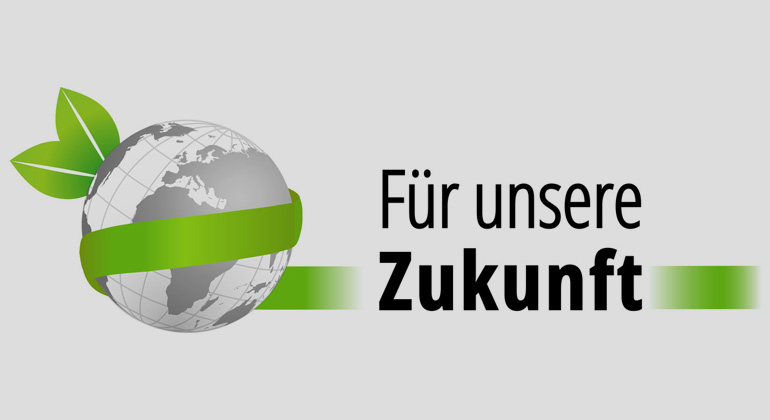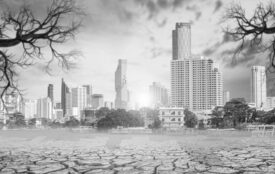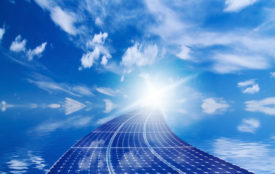Easter hope for climate protection?
One heat record follows another. And Europe is warming faster than any other continent.
Ships can carry less cargo on the Rhine. Sandbanks are emerging from the water in Lake Constance. We are experiencing dramatic glacier melt. Our continent had the hottest year in its history in 2024. The EU climate service Copernicus warns of serious impacts on health, the economy and energy supplies. In April 2025, the Helmholtz Centre for Environmental Research reports much drier soils than in an average April.
Copernicus has calculated that the average temperature in Europe is already 2.4 degrees above pre-industrial levels. Globally, 2024 was also the warmest year since 1872. The number of heat-related deaths in Europe in 2023 is estimated at 46,000.
Large parts of France, northern Italy, Denmark and the Benelux countries have recently experienced increased rainfall, while Eastern Europe has been too dry. Eastern Ukraine and Russia are experiencing their driest year since 1979. The spring drought will also affect German agriculture in 2025.
The development of renewable energies
On a positive note, however, renewable energies are developing well. With a 45 per cent share of electricity generation, photovoltaics, wind and hydropower are exceeding all previous records within the EU, and in Germany, over 60 per cent of electricity will be generated from renewable sources by 2025. The Copernicus report also shows progress in adapting to the consequences of climate change. In 2025, twice as many European cities will have adaptation measures in place as in 2018.
At Easter 2025, we will see both positive and negative developments in climate protection. In abstract terms, we are quite reasonable, but in concrete terms, the picture often looks different.
In surveys, two-thirds of Americans say that climate change is a threat. But only 16 percent of US citizens feel personally threatened. The danger is projected onto others. Most people still live as if they have never heard of climate change. In Germany, too, most people want politicians to combat the climate crisis, but not at the expense of car manufacturers and consumers. The fact that, parallel to the energy transition in this country, the number of kilometres travelled by car, truck and plane has increased, while the proportion of kilometres travelled by public transport has remained virtually unchanged, shows what a deeply contradictory society we live in.
Empathy for the climate and the environment sounds good, but it becomes hypocritical if it does not lead to action. The ecological transformation comes at a cost, but not taking action will cost us our future and, even more so, that of our children and grandchildren. Green, sensible climate policy requires common sense and makes sense.
But even the philosopher Hannah Arendt wrote in 1958 in her book Vita Activa, written in exile in the United States: ‘A noticeable decline in common sense and a noticeable increase in superstition indicate that the sense of reality with which we orient ourselves in the world is disturbed.’ In recent years, we have seen a rise in superstition and conspiracy theories mixed with nationalist fantasies and the search for simple answers to complex questions in almost all Western societies. This often makes it difficult for common sense and the search for meaning to prevail.
Nevertheless, we are witnessing a dramatic breakthrough in renewable energies worldwide. There is good reason to work towards a global solar revolution. Easter is the celebration of life that conquers death and destruction. There is a good chance that we can still stop climate change. Happy Easter, with hope for the future. Hallelujah!








